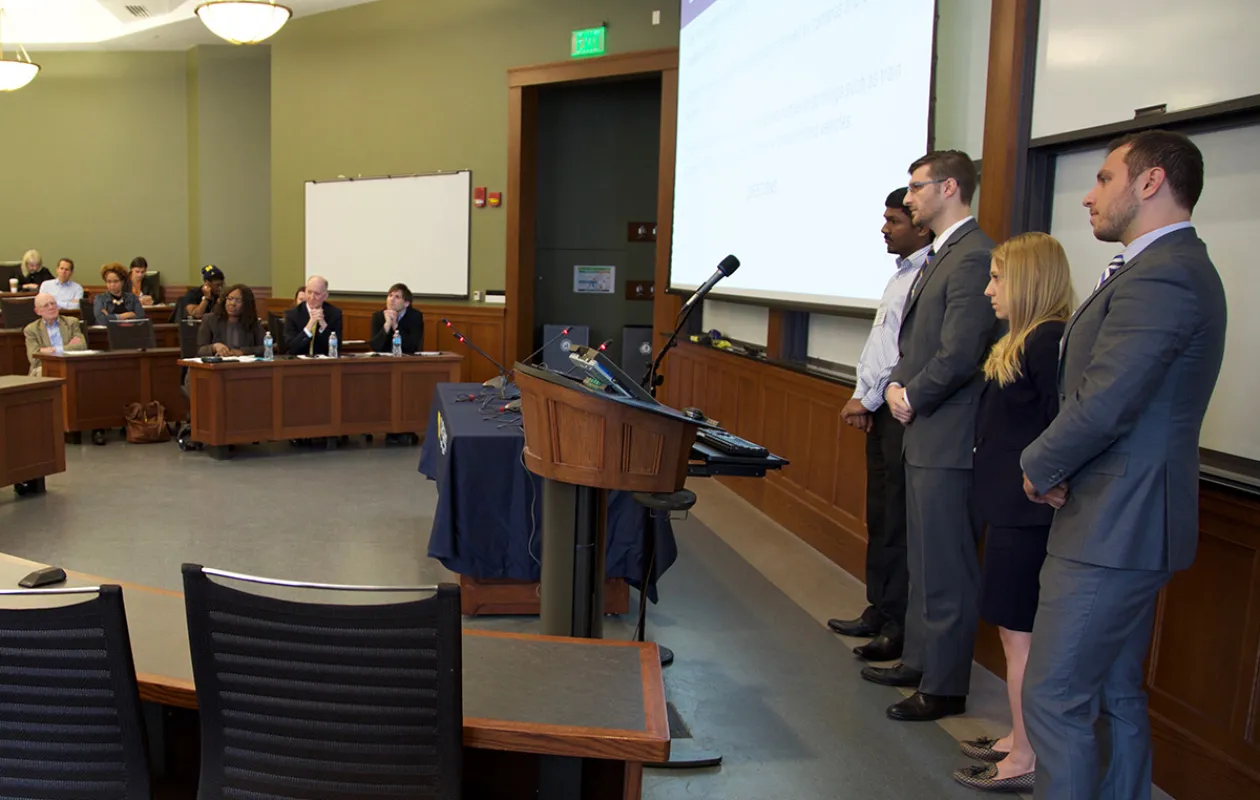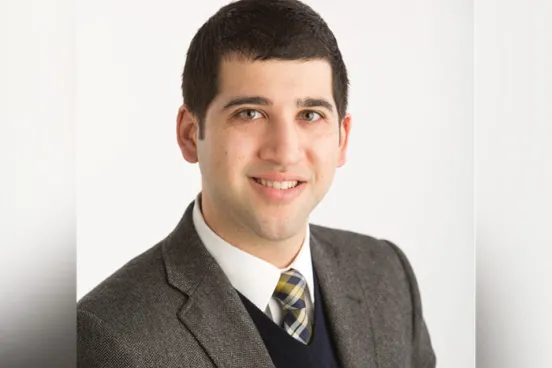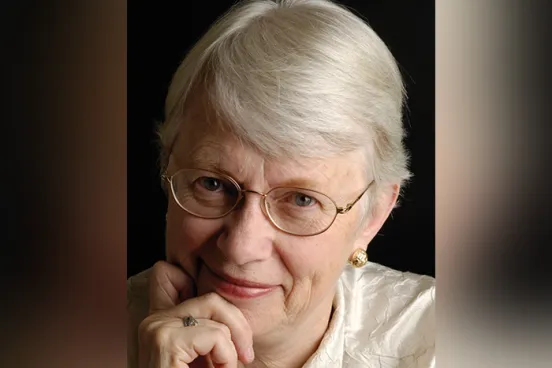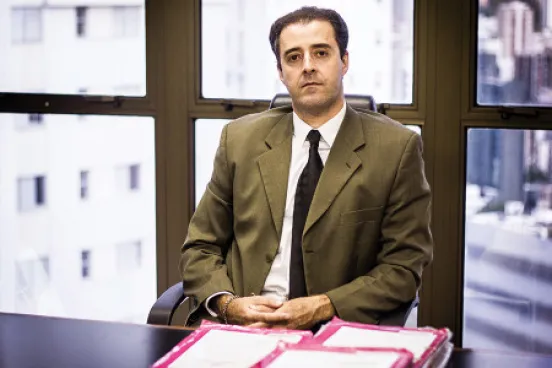“Law school can get very in the weeds,” says Katie Hart, a 3L. “All your classmates are learning how to speak the same language, but to be an effective lawyer, you need to communicate with clients who won’t be fluent in legalese.” By working alongside students from other disciplines in one of the Law School’s inaugural Problem Solving Initiative (PSI) courses last winter, Hart laid the groundwork for effective client communication as she translated legal concepts to her fellow Wolverines.
Sharpening communication skills is one of the PSI’s goals, says Alicia Davis, associate dean for strategic initiatives and PSI’s director. “By working with peers from other disciplines, our students are forced to communicate without using legal vernacular to convey ideas. These courses teach that, along with how to work collaboratively across disciplines to address real-world challenges.”
The PSI framework requires students to work in teams to address big societal problems. Faculty serve as guides, but students primarily work with peers and look at issues through a variety of lenses. PSI’s two winter 2017 pilot courses focused on privacy, regulatory, and business-use issues related to autonomous vehicle data, and ways to better support human trafficking victims in the U.S. child welfare system.
Students from outside the Law School like Riley L. Wagner, a master’s degree candidate in the School of Public Health, love the PSI format. “It is a unique opportunity to learn to collaborate with colleagues across disciplines to solve problems under the guidance of amazing professors. This course resulted in skills like innovation and relationship-building that cannot be taught in a lecture hall anywhere.”
Experiential learning is another benefit of PSI courses, according to Davis. Students in the human trafficking course explored real issues facing victims and interacted with local stakeholders. The course’s co-teachers, Clinical Professors Bridgette Carr, ’02, and Vivek Sankaran, ’01, were delighted by the students’ level of engagement. “As a clinician, I was thrilled to see the solutions they came up with in 13 weeks,” Carr says. “The interdisciplinary dialogue generated a lot of lively discussion and ideas, but also the students felt vested because they were working with real people whose lives had been impacted by trafficking, and not just a case from a book.”
Hart says her experience in the autonomous vehicles course also helped prepare her for life after Michigan Law. “I am going to work at a boutique firm in Silicon Valley that works with startups, many of them of a technical nature. The PSI course gave me confidence in discussing technological issues, a transferrable skill that I can apply to my clients’ products to better serve them.”
Assessing problems is one part of the PSI framework, but the other is coming up with solutions. At the end of the semester, students in each PSI class presented capstone group projects that were judged by faculty and community stakeholders.
Huei Peng, the Roger L. McCarthy Professor of Mechanical Engineering at U-M and director of Mcity, the University’s autonomous vehicles testing ground, judged the presentations for the autonomous vehicles pilot course. “Their ideas were out of the box and, as such, offer potential answers to some of the big questions facing autonomous vehicle usage from a legal standpoint.”
The PSI’s success also can be seen in the numbers. Enrollment for winter 2017 and fall 2017 courses was oversubscribed, and applications more than doubled from winter to fall. Fourteen of U-M’s 19 schools and colleges are participating in the PSI. Starting in winter 2018, PSI classes will be open to all U-M graduate and professional students.
Fall 2017 courses include Connected and Autonomous Vehicle Technology: Business and Regulatory Issues; Economic Integration for Individuals in the Refugee Resettlement Program; Identifying Victims of Human Trafficking within Health Care Settings; and Stable and Integrated Housing for America’s Working Poor.
Davis says she is energized by the PSI’s initial success and excited to see it grow. “We are not just teaching problem solving but also communication skills and cross-disciplinary competence—all of which prepare students for successful careers after graduation. I don’t think we could have asked for a better outcome or response from students and faculty at this stage.”







![The Tech [R]evolution in Law The Tech [R]evolution in Law](/sites/default/files/styles/teaser/public/2023-03/The-Tech-%5BR%5Devolution-in-Law.jpg.webp?itok=Obrll94p)
